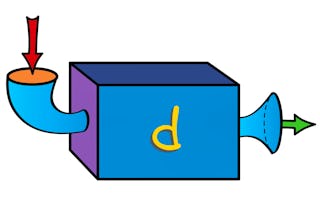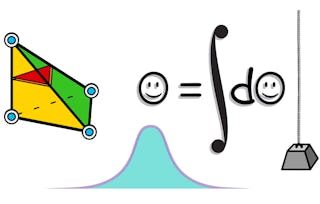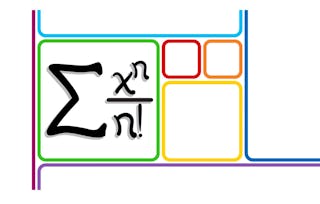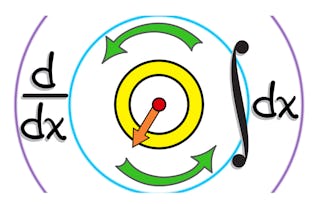Calculus is one of the grandest achievements of human thought, explaining everything from planetary orbits to the optimal size of a city to the periodicity of a heartbeat. This brisk course covers the core ideas of single-variable Calculus with emphases on conceptual understanding and applications. The course is ideal for students beginning in the engineering, physical, and social sciences. Distinguishing features of the course include: 1) the introduction and use of Taylor series and approximations from the beginning; 2) a novel synthesis of discrete and continuous forms of Calculus; 3) an emphasis on the conceptual over the computational; and 4) a clear, dynamic, unified approach.

Calculus: Single Variable Part 1 - Functions

2,368 reviews
Skills you'll gain
Details to know

Add to your LinkedIn profile
21 assignments
See how employees at top companies are mastering in-demand skills

There are 4 modules in this course
Welcome to Calculus: Single Variable! below you will find the course's diagnostic exam. if you like, please take the exam. you don't need to score a minimal amount on the diagnostic in order to take the course. but if you do get a low score, you might want to readjust your expectations: this is a very hard class...
What's included
1 video2 readings2 assignments
This module will review the basics of your (pre-)calculus background and set the stage for the rest of the course by considering the question: just what <i>is</i> the exponential function?
What's included
3 videos1 reading4 assignments
This module gets at the heart of the entire course: the Taylor series, which provides an approximation to a function as a series, or "long polynomial". You will learn what a Taylor series is and how to compute it. Don't worry! The notation may be unfamiliar, but it's all just working with polynomials....
What's included
5 videos8 assignments
A Taylor series may or may not converge, depending on its limiting (or "asymptotic") properties. Indeed, Taylor series are a perfect tool for understanding limits, both large and small, making sense of such methods as that of l'Hopital. To solidify these newfound skills, we introduce the language of "big-O" as a means of bounding the size of asymptotic terms. This language will be put to use in future Chapters on Calculus.
What's included
4 videos1 reading7 assignments
Instructor

Offered by
Explore more from Math and Logic
 Status: Free
Status: FreeUniversity of Pennsylvania
 Status: Free
Status: FreeUniversity of Pennsylvania
 Status: Preview
Status: PreviewUniversity of Pennsylvania
 Status: Free
Status: FreeUniversity of Pennsylvania
Why people choose Coursera for their career

Felipe M.

Jennifer J.

Larry W.

Chaitanya A.
Learner reviews
- 5 stars
80.07%
- 4 stars
15.06%
- 3 stars
2.53%
- 2 stars
0.67%
- 1 star
1.64%
Showing 3 of 2368
Reviewed on May 30, 2020
Very creative way of teaching one of the most important and difficult applied math topic. The course is taught differently then traditional textbook and is challenging as well.
Reviewed on Mar 5, 2021
Awesome , I love to do maths ( challenging maths ) like we are playing game and clearing level one by one ,but still it will be better if we get answer of question which we failed to attempt it
Reviewed on Feb 9, 2021
Excellent introduction to Calculus, I wanted to review the material to tutor my child but I am very happy that I learned a whole new way of looking at Calculus.Thank you so much Prof. Ghrist.

Open new doors with Coursera Plus
Unlimited access to 10,000+ world-class courses, hands-on projects, and job-ready certificate programs - all included in your subscription
Advance your career with an online degree
Earn a degree from world-class universities - 100% online
Join over 3,400 global companies that choose Coursera for Business
Upskill your employees to excel in the digital economy
Frequently asked questions
To access the course materials, assignments and to earn a Certificate, you will need to purchase the Certificate experience when you enroll in a course. You can try a Free Trial instead, or apply for Financial Aid. The course may offer 'Full Course, No Certificate' instead. This option lets you see all course materials, submit required assessments, and get a final grade. This also means that you will not be able to purchase a Certificate experience.
More questions
Financial aid available,

